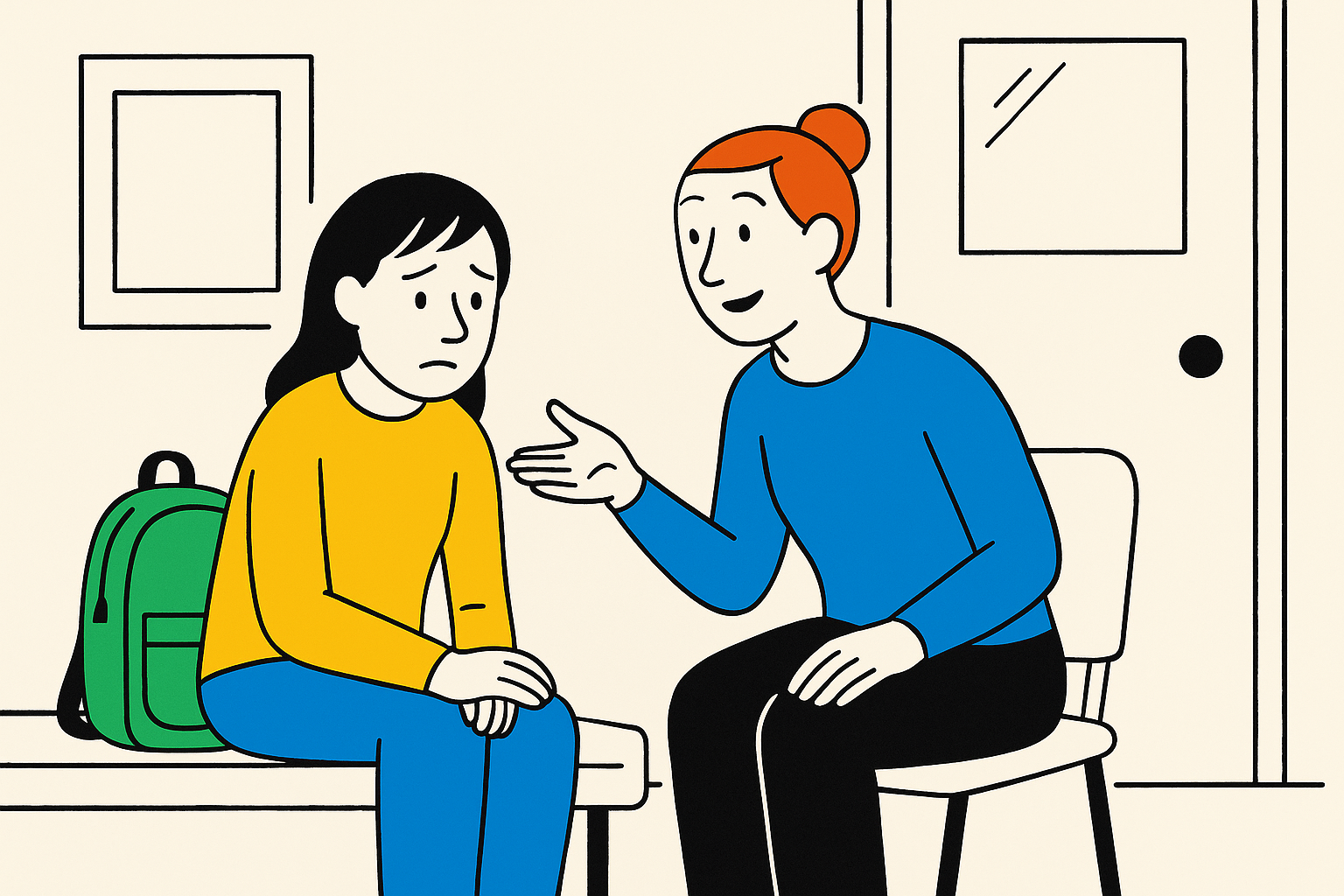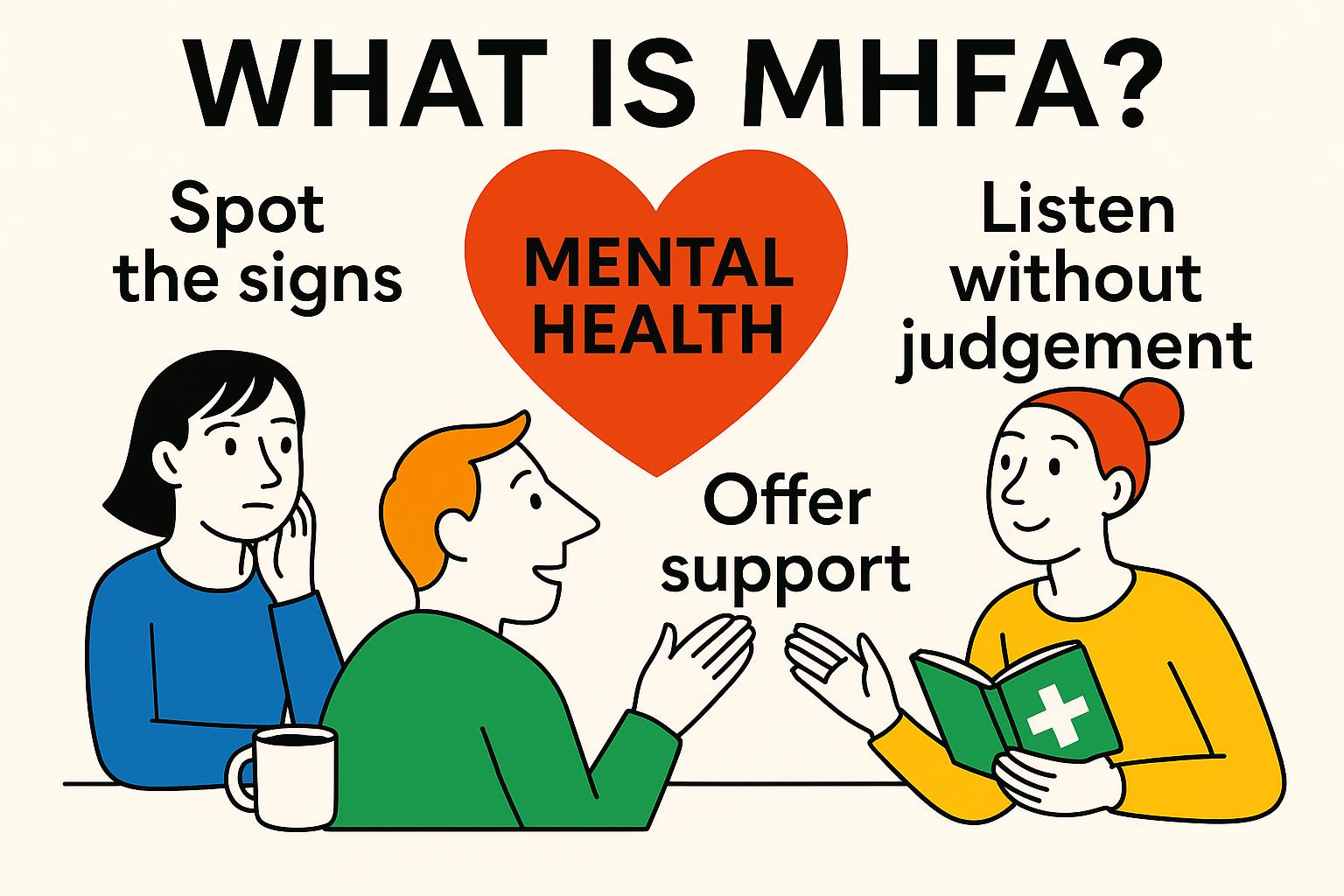Mental Health First Aid: The Little Things Can Matter Most
A teacher told me this story not long ago.
There was a new student - let’s call her Emma. She’d only been at the school a few weeks. Quiet in class. Always alone at break. Her homework started slipping. A few staff members figured she was still adjusting. Some thought, “She’s just shy.” Others chalked it up to typical teenage moodiness.
But one teaching assistant - someone who’d recently done a Mental Health First Aid course - noticed something different. They checked in. Nothing dramatic. Just a quiet moment after class:
“Hey, I’ve noticed you’ve been a bit quiet. You doing okay?”
And Emma opened up. She didn’t need to be fixed. She just needed to be seen. That conversation started her on the path to getting support.
That one small moment made all the difference.
Sometimes, one conversation can make all the difference.
Why International Schools Need This More Than Most
If you’ve ever worked in or around an international school, you know they’re full of diversity and energy. Students come from all over the world. Cultures mix. Stories collide. It’s beautiful, but it can also be overwhelming.
For students, especially, it’s a lot:
New city, new school, sometimes a new language
Far from extended family and familiar routines
Academic expectations that may feel unfamiliar or intense
The invisible weight of trying to “fit in”
And staff members? They’re often dealing with their own transitions, high workloads, and the emotional demands of being the steady presence in an environment full of change.
In all of this movement, emotional needs can slip by unnoticed.
So, What Is Mental Health First Aid?
Mental Health First Aid (MHFA) isn’t about diagnosing or fixing. It’s about learning to recognise when someone might be struggling, and having the confidence and tools to respond in a calm, caring way.
You learn how to:
Spot early signs of emotional distress
Start conversations with kindness and without pressure
Offer support - not solutions
Know when and how to guide someone to professional help
It’s not about being a hero. It’s about being human and knowing what to do in those small but significant moments.
For Teachers and School Staff - A Few Practical Takeaways
You don’t need to be trained in MHFA to start doing things differently. Here are a few small shifts that can make a big impact:
Notice the changes: is a usually chatty student suddenly silent? Is a colleague withdrawing from the staff room? These little shifts matter.
Ask - gently: you don’t have to get it perfect. Just showing you care opens a door. A simple, “You seem a bit off lately - want to chat?” can make someone feel less alone.
Resist the urge to fix: you don’t have to cheer them up or offer advice. Often, the most powerful thing is to just listen - really listen.
Know where to point them: have a list of resources on hand - school counsellors, trusted adults, helplines. Sometimes people just need a bridge.
Be honest about your own limits: it’s okay to say, “I’m not sure how to help, but I want to support you in finding someone who can.”
Creating a Culture Where It’s OK to Not Be OK
What we’ve seen again and again (especially in international school settings) is this: when just a few people know how to show up in the right way, everything changes.
Students feel safer.
Staff feel less alone.
Mental health becomes something we talk about - not tiptoe around.
Emma didn’t need a program. She needed a person. And that person just needed the tools and the confidence to ask.
If you work in a school (or care about someone who does) take this as a gentle nudge. You don’t need to be a counsellor. You don’t need to have the right words all the time.
You just need to care enough to ask. And be willing to listen. Because the little conversations? They’re the ones that stick. They’re the ones that save.


